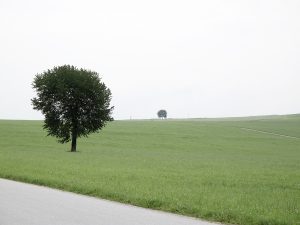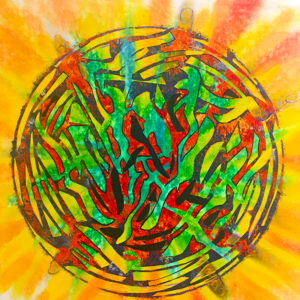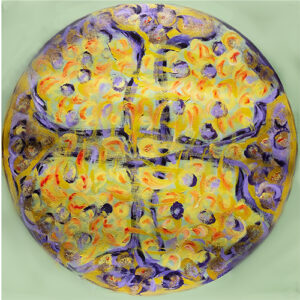 I’m having a bad day. While eating breakfast we hear voices coming from our back deck, which no-one can access except through the house. On investigating, we find a gentleman at the top of a ladder against our back wall. He is talking to someone about what large branches he is going to cut from a tree that gives us a generous amount of shade on our back patio.
I’m having a bad day. While eating breakfast we hear voices coming from our back deck, which no-one can access except through the house. On investigating, we find a gentleman at the top of a ladder against our back wall. He is talking to someone about what large branches he is going to cut from a tree that gives us a generous amount of shade on our back patio.
“What! You can’t cut that tree. It’s a city tree.” My blood pressure has already gone up. I love trees; know we need more, not fewer, to help us save our planet. We definitely need them in the centre of a hot city, especially for shade on this deck.
The neighbour who lives behind is quickly on the spot. Because I’m already upset, my affect is confrontational. To his credit, (maybe), he tries to tone it down while telling us the city does not own the tree. He has permission to cut as much as he wants for more sunlight on his small back garden.
Not only did I loose the “fight,” but I add to the day’s upset by being upset at how quickly I got upset in the first place. Watching the first large branch come down doesn’t help.
When I finally get to my ‘prayer journal and meditation time’, there is much to record and reflect upon. Not the least of it is that I have lost valuable working time I had set aside to consider material for a conversation I will be having soon with someone making a podcast on the topic of prayer.
My journal gets my side of the story; what has and is still happening. I hear the saw as I write. I’m trying to calm down. I ask/pray for “help.” The situation “pushed my buttons” – those labelled “not being taken seriously” by some (self-appointed, male) authority; my concerns not being heard or considered — we need more trees, not less, especially in downtown Toronto; we need shade on our deck. I continue, “How am I an expert on prayer when I so easily fly off the handle. It just shows how much help I need to be my best self. Maybe a simple definition of prayer is a practice that helps me be my best self in the world.”
I recall the text: My grace is sufficient for you; for my strength is made perfect in weakness.” (2 Corinthians 12:9) Does this mean that my “weaknesses” – over-reaction when my childhood wounds have been poked or someone challenges something I feel passionate about — is a way in which I am reminded that maybe I’m not in control, and when I turn for “help” to the one I sometimes call God; the Grace I receive is the gift. Almost 50 years ago I was involved with a charismatic Christian group who believed “speaking in tongues” was the ultimate God-given gift. Being “filled with the spirit”, I believed my life would finally be perfect, happy, whatever! The group prayed over me; nothing happened; At home, on my knees, I prayed for the “gift of tongues” through the night; nothing happened. I abandoned the group. I wanted a quick fix for the normal struggles of life.
Now I know there is no short-cut to a “spirit-filled” life – whatever that is! In our culture we seem to want easy answers. We want God, or someone, to fix what hurts or is broken. It didn’t happen for Jesus and it doesn’t happen for us. We have to descend into whatever is our personal hell (self-generated or otherwise) for re-birth or resurrection. Even this little tree incident which took me “down” had to be processed before I returned to an even keel. “Today’s trouble is enough for today.” (Matthew 6:34). I guess this is why we need “daily” prayer practice – and it is just that, a practice. But that it worked for me today, has before, and will again — that is Grace.


